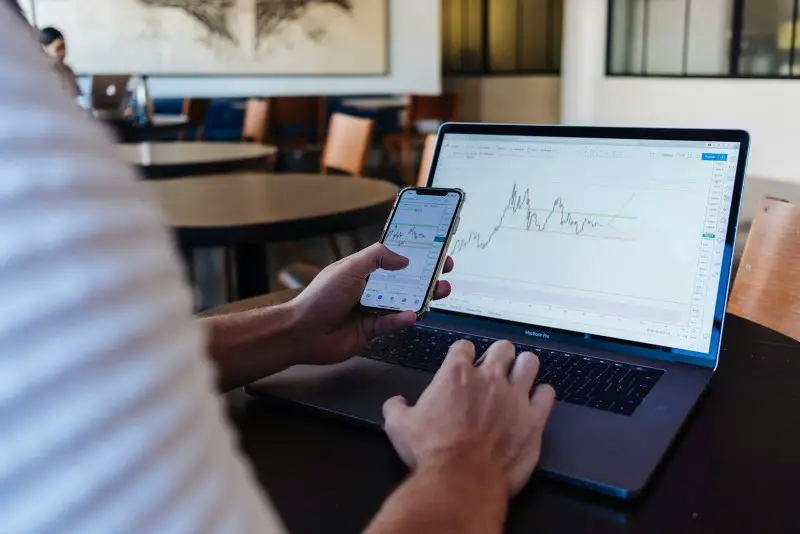
The rise of advanced technologies has transformed the way people invest and trade, and online trading in South Africa has followed suit. In recent years, financial markets in the country have adopted cutting edge innovations, including artificial intelligence solutions that streamline decision making and reduce human error.
Traders who once relied on manual processes now benefit from automated systems that process vast amounts of data within milliseconds. These AI driven tools have begun to redefine how South African traders approach everything from foreign exchange to equities, leading to more precise and strategic market participation.
The Growth of AI in South Africa
South Africa is fast becoming a hub for artificial intelligence solutions, with tech startups and established institutions focusing on everything from predictive analytics to machine learning applications. Local universities have launched specialized courses and research initiatives, and private sector investment has grown rapidly in tech driven ventures. This momentum is evident in the number of AI related events and competitions that draw tech enthusiasts and entrepreneurs from across the region. These gatherings foster collaboration and encourage knowledge sharing, which in turn fuels the development of tools designed for the financial sector. With each passing year, South Africa’s AI community expands in scope and complexity, bringing forth innovations that stand to reshape how automated trade execution unfolds.
Businesses and government agencies in South Africa have begun exploring AI solutions for diverse applications, including healthcare, education, and security. However, the financial services sector has emerged as a key beneficiary. Commercial banks, asset management firms, and brokerages are embracing advanced algorithms to optimize everything from customer service chatbots to fraud detection systems. By tapping into AI, financial institutions can enhance operational efficiency and offer better services to tech savvy clients who expect a smooth, efficient trading experience.
Read Also: 2026 WCQ: The Group Is Not Decided Yet — Zimbabwe Coach Speaks Ahead Super Eagles Clash
AI Driven Insights for Automated Trading
In the world of online trading, success relies on quickly identifying opportunities and acting on them at the right moment. AI based tools excel at sifting through vast datasets, spotting correlations, and generating insights that might be missed by human analysts. They can evaluate market sentiment, macroeconomic indicators, and past price data to forecast possible price movements. Once these forecasts are generated, automated trading systems can execute trades at lightning speed, often outperforming traditional manual approaches.
One of the primary advantages of AI assisted trade execution lies in its ability to reduce emotional biases. While human traders might be swayed by fear or greed, AI systems rely on data driven models that maintain a consistent approach to buying and selling. This helps traders stick to predefined risk parameters, ensuring that trades are executed in alignment with strategic goals. For advanced market participants in South Africa, AI offers an opportunity to refine tactics, whether they specialize in forex, equities, or derivatives. Instead of juggling numerous indicators and financial reports, they can rely on AI to spot patterns and highlight windows of opportunity.
Local Market Adaptations
Although AI powered automation can be used for markets worldwide, South African traders often need specialized tools that cater to the nuances of local markets. Certain brokers have introduced software that integrates real time data from the Johannesburg Stock Exchange, allowing algorithmic trading systems to parse relevant information and make instantaneous decisions. These solutions take into account South Africa’s regulatory environment, currency dynamics, and regional market sentiment. Furthermore, local AI developers are working to include indigenous languages and cultural nuances in their platforms, making technology more accessible to traders from various backgrounds.
Some firms in South Africa are exploring AI solutions that combine high volume data analysis with fundamental market research tailored to the region’s unique economic structure. By integrating details like political developments, commodity price fluctuations, and trade policies, these AI driven applications can create well rounded trading strategies. This localized approach fosters a competitive edge for South African traders, since they can gain deeper insights into the assets and currency pairs that matter most to them.
Challenges and Regulatory Considerations
Despite the promise of AI, challenges remain. The sophistication of AI models and the speed at which trades are executed can create risk if not properly monitored. Sudden changes in market conditions or unexpected events can test the resilience of automated strategies. Regulators and financial institutions in South Africa face the task of establishing guidelines that ensure these technologies are used responsibly, with adequate risk controls and transparency. Proper oversight can protect both individual traders and the broader financial ecosystem, allowing the benefits of AI to flourish without compromising market stability.
Data security and privacy concerns are also part of the conversation. AI systems thrive on large amounts of information, which can include sensitive personal or financial data. Ensuring compliance with data protection laws is crucial, and traders, brokerages, and developers must work together to maintain trust in AI based solutions.
Looking Ahead
As AI continues to evolve, its influence on online trading in South Africa will only grow. More businesses will enter the market with innovative algorithms, offering an ever increasing array of options to local traders. Education and training will become even more vital, ensuring that market participants understand how to deploy AI responsibly and effectively. Meanwhile, better internet connectivity and the proliferation of mobile devices will broaden access to trading platforms, bringing more South Africans into the fold.
With AI driven solutions at their fingertips, traders can reduce the time spent on manual research and focus on strategic oversight. Automated systems can spot trends across global markets, gauge the impact of real time news, and adjust holdings accordingly. South Africa’s expanding AI ecosystem is poised to bring even greater sophistication to the realm of automated trade execution. This transformation holds immense potential for those who are ready to harness the power of AI, bolstering market efficiency and offering new ways to stay ahead of the curve in the rapidly evolving world of finance.
Artificial Intelligence (AI) heeft de afgelopen jaren een enorme impact gehad op verschillende sectoren over de hele wereld. In Zuid-Afrika is er een groeiend ecosysteem van AI-technologieën en -bedrijven die de manier waarop handelsuitvoering wordt geautomatiseerd, transformeren.
Het opkomende AI-ecosysteem in Zuid-Afrika heeft de potentie om de handelsuitvoering efficiënter en effectiever te maken. Door gebruik te maken van geavanceerde algoritmen en machine learning-technologieën, kunnen handelaren en investeerders betere beslissingen nemen op basis van data-analyse en voorspellende modellen. Dit kan leiden tot hogere winsten en betere risicobeheersing.
Een van de belangrijkste voordelen van het gebruik van AI in handelsuitvoering is de snelheid en nauwkeurigheid waarmee transacties kunnen worden uitgevoerd. AI-systemen kunnen grote hoeveelheden gegevens analyseren en verwerken in fracties van een seconde, waardoor handelaren sneller kunnen reageren op marktveranderingen en kansen kunnen benutten voordat ze verdwijnen.
Daarnaast kan AI helpen bij het identificeren van trends en patronen in de markt die voor menselijke handelaren moeilijk te detecteren zijn. Door deze inzichten te gebruiken, kunnen handelaren betere beslissingen nemen en hun winstgevendheid vergroten.
Het opkomende AI-ecosysteem in Zuid-Afrika heeft ook het potentieel om de financiële sector te transformeren. Door het gebruik van AI kunnen financiële instellingen hun risicobeheersing verbeteren, frauduleuze activiteiten detecteren en klantenservice verbeteren.
Hoewel er veel voordelen zijn verbonden aan het gebruik van AI in handelsuitvoering, zijn er ook uitdagingen en risico’s. Een van de belangrijkste zorgen is de mogelijke impact op de werkgelegenheid, aangezien sommige taken die voorheen door mensen werden uitgevoerd nu worden geautomatiseerd door AI-systemen. Het is daarom belangrijk dat er beleid wordt ontwikkeld om de overgang naar een AI-gedreven economie soepel te laten verlopen en om ervoor te zorgen dat werknemers worden opgeleid voor de banen van de toekomst.
Al met al heeft het opkomende AI-ecosysteem in Zuid-Afrika het potentieel om de handelsuitvoering te transformeren en de financiële sector te veranderen. Met de juiste strategieën en beleidsmaatregelen kan Zuid-Afrika profiteren van de voordelen van AI en een concurrentievoordeel behalen in de wereldwijde markt.

